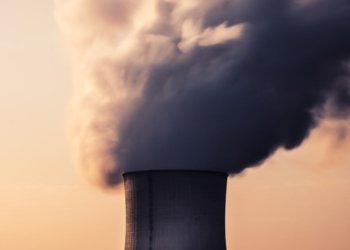In the lead-up to the French parliamentary election, the political landscape is shifting dramatically. Recent polls indicate that Marine Le Pen’s far-right party, Rassemblement National (RN), has gained significant trust among voters. As the campaign enters its final week, President Emmanuel Macron’s party, Ensemble, faces tough competition from both the far-right and left-wing rivals.
RN’s Economic Agenda Resonates with Voters
The RN’s economic policies have struck a chord with many French citizens. Le Pen’s promises of job creation, tax reforms, and stronger national industries have resonated, particularly in regions hit hard by economic challenges. Analysts speculate that this surge in support could significantly impact the election outcome.

The RN’s focus on economic revitalization has captured the attention of voters across the political spectrum. From small business owners to workers in declining industries, there’s a sense of hope that the RN’s proposals could bring positive change.
Le Pen’s stance on immigration and border security has also contributed to her party’s popularity. Amid global uncertainties, voters are seeking leaders who prioritize national interests and security.
However, critics argue that the RN’s nationalist agenda risks alienating France from its European partners. The delicate balance between sovereignty and cooperation remains a central debate in this election.
Macron’s Struggle to Maintain Support
President Macron’s party, Ensemble, faces an uphill battle. Despite his pro-European stance and efforts to modernize France, Macron’s popularity has waned. His handling of economic reforms, social issues, and the pandemic response has left some disillusioned.
Ensemble’s campaign emphasizes stability, unity, and continued European integration. Macron seeks to position himself as a bridge between different ideologies, but the electorate’s mood remains unpredictable.
The left-wing opposition, led by Jean-Luc Mélenchon, poses a formidable challenge. Mélenchon’s anti-establishment rhetoric appeals to disenchanted voters who feel left behind by globalization and economic inequality.
As the first-round vote approaches, Macron’s team is intensifying efforts to regain momentum. Whether they can sway undecided voters and prevent a runoff between the RN and left-wing candidates remains uncertain.
“Voter Turnout and the Impact on France’s Future”
The upcoming election isn’t just about parties and policies; it’s a critical moment for French democracy. Voter turnout will determine the direction of the National Assembly and the government’s ability to address pressing issues.
Young voters, in particular, hold the key to shaping France’s future. Their engagement could shift the balance of power and influence policy decisions on climate change, education, and social justice.
The pandemic’s lingering effects and economic recovery efforts also weigh heavily on voters’ minds. Whoever emerges victorious will face immense challenges in rebuilding the nation.




































